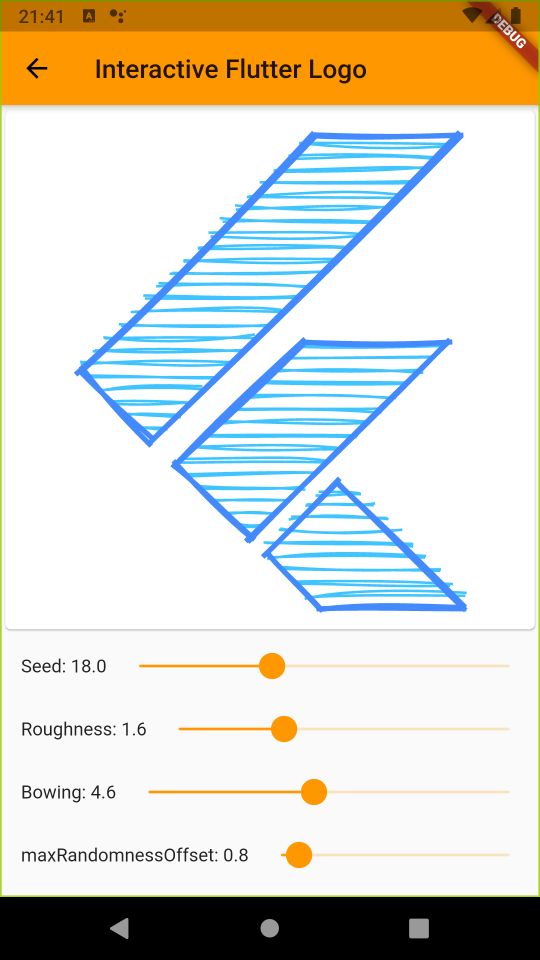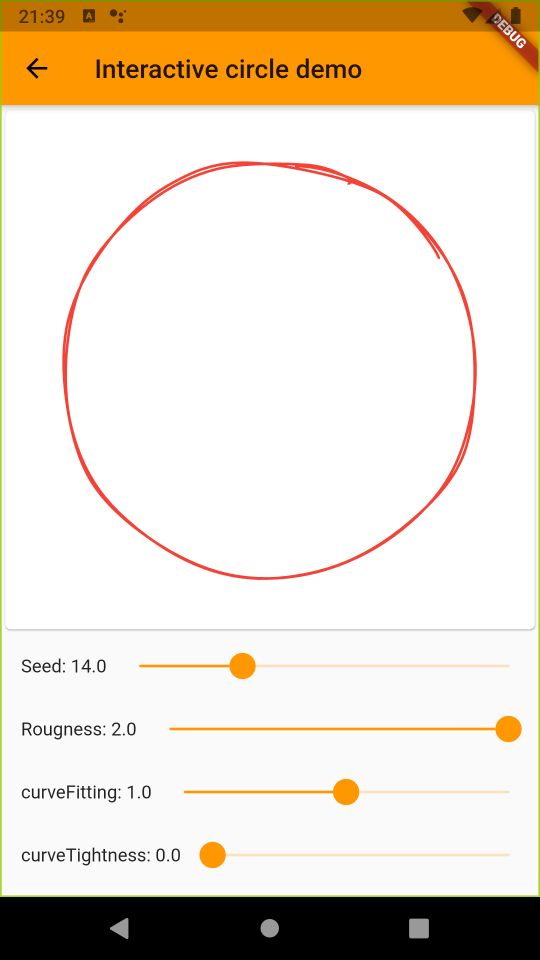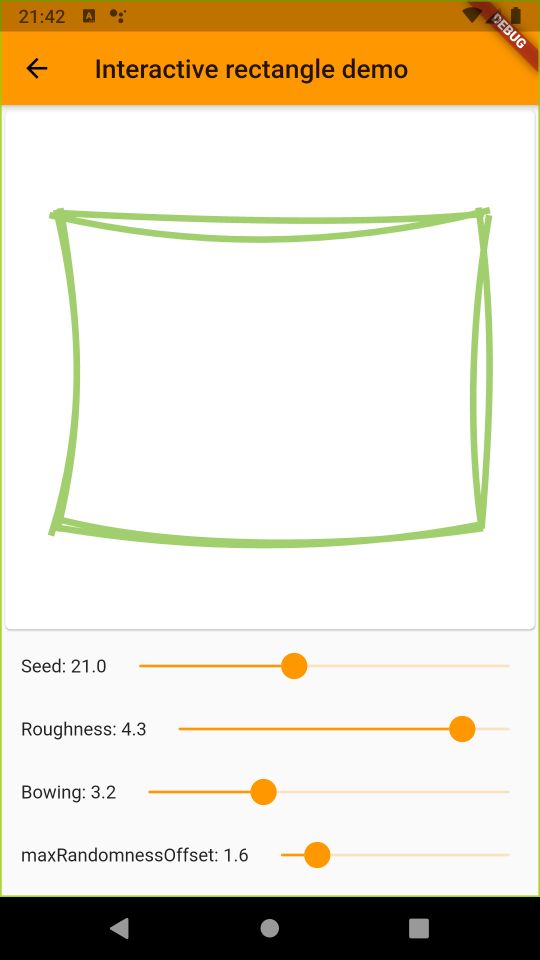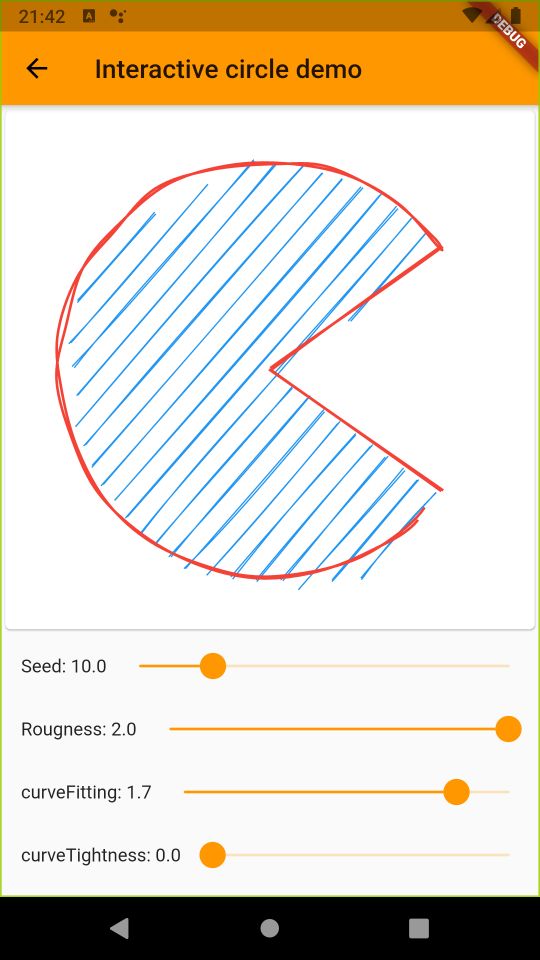Rough is a library that allows you draw in a sketchy, hand-drawn-like style. It's a direct port of Rough.js.
In the dependencies: section of your pubspec.yaml, add the following line:
dependencies:
rough: <latest_version>Right now only drawing via canvas is supported. This is a basic documentation in case you want to play around with Rough. I can't ensure non-breaking changes of the library interface.
To draw a figure you have to:
- Create a
DrawConfigobject to determine how your drawing will look. - Create a
Fillerto be used when drawing objects (you have to provide a configuration for the filling and aDrawConfigfor the filling path). - Create a
Generatorobject using the createdDrawConfigandFiller. This will define a drawing/filling style. - Invoke the drawing method from the
Generatorto create aDrawable. - Paint the
Drawablein the canvas using thedrawRoughmethod extension forCanvas.
Here an example on how to draw a circle:
//Create a `DrawConfig` object.
DrawConfig myDrawConfig = DrawConfig.build(
roughness: 3,
curveStepCount: 14,
maxRandomnessOffset: 3,
);
//Create a `Filler` with a configuration (we reuse the drawConfig in this case).
FillerConfig myFillerConfig = FillerConfig(
hachureGap: 8,
hachureAngle: -20,
drawConfig: myDrawConfig,
);
Filler myFiller = ZigZagFiller(myFillerConfig);
//Create a `Generator` with the created `DrawConfig` and `Filler`
Generator generator = Generator(
myDrawConfig,
myFiller,
);
//4. Build a circle `Drawable`.
Drawable figure = generator.circle(200, 200, 320);
//5. Paint the `Drawable` in the canvas.
Canvas.drawRough(figure, pathPaint, fillPaint);And this is the result:
Both DrawConfig and FillerConfig will use default values for anything not specified.
Some screenshots of the example app:







